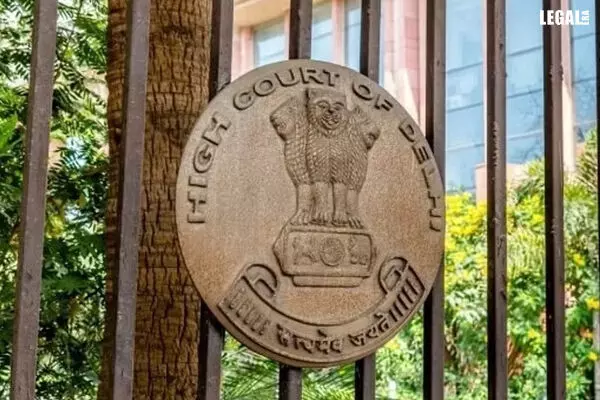- Home
- News
- Articles+
- Aerospace
- Artificial Intelligence
- Agriculture
- Alternate Dispute Resolution
- Arbitration & Mediation
- Banking and Finance
- Bankruptcy
- Book Review
- Bribery & Corruption
- Commercial Litigation
- Competition Law
- Conference Reports
- Consumer Products
- Contract
- Corporate Governance
- Corporate Law
- Covid-19
- Cryptocurrency
- Cybersecurity
- Data Protection
- Defence
- Digital Economy
- E-commerce
- Employment Law
- Energy and Natural Resources
- Entertainment and Sports Law
- Environmental Law
- Environmental, Social, and Governance
- Foreign Direct Investment
- Food and Beverage
- Gaming
- Health Care
- IBC Diaries
- In Focus
- Inclusion & Diversity
- Insurance Law
- Intellectual Property
- International Law
- IP & Tech Era
- Know the Law
- Labour Laws
- Law & Policy and Regulation
- Litigation
- Litigation Funding
- Manufacturing
- Mergers & Acquisitions
- NFTs
- Privacy
- Private Equity
- Project Finance
- Real Estate
- Risk and Compliance
- Student Corner
- Take On Board
- Tax
- Technology Media and Telecom
- Tributes
- Viewpoint
- Zoom In
- Law Firms
- In-House
- Rankings
- E-Magazine
- Legal Era TV
- Events
- Middle East
- Africa
- News
- Articles
- Aerospace
- Artificial Intelligence
- Agriculture
- Alternate Dispute Resolution
- Arbitration & Mediation
- Banking and Finance
- Bankruptcy
- Book Review
- Bribery & Corruption
- Commercial Litigation
- Competition Law
- Conference Reports
- Consumer Products
- Contract
- Corporate Governance
- Corporate Law
- Covid-19
- Cryptocurrency
- Cybersecurity
- Data Protection
- Defence
- Digital Economy
- E-commerce
- Employment Law
- Energy and Natural Resources
- Entertainment and Sports Law
- Environmental Law
- Environmental, Social, and Governance
- Foreign Direct Investment
- Food and Beverage
- Gaming
- Health Care
- IBC Diaries
- In Focus
- Inclusion & Diversity
- Insurance Law
- Intellectual Property
- International Law
- IP & Tech Era
- Know the Law
- Labour Laws
- Law & Policy and Regulation
- Litigation
- Litigation Funding
- Manufacturing
- Mergers & Acquisitions
- NFTs
- Privacy
- Private Equity
- Project Finance
- Real Estate
- Risk and Compliance
- Student Corner
- Take On Board
- Tax
- Technology Media and Telecom
- Tributes
- Viewpoint
- Zoom In
- Law Firms
- In-House
- Rankings
- E-Magazine
- Legal Era TV
- Events
- Middle East
- Africa
Delhi High Court Rules In Favor Of KRBL In India Gate & Bharat Gate Trademark Dispute

Delhi High Court Rules In Favor Of KRBL In India Gate & Bharat Gate Trademark Dispute
The Delhi High Court has allowed an appeal filed by KRBL Limited in a trademark dispute concerning the India Gate and Bharat Gate rice brands. The Court concluded that both marks are phonetically similar and that there is a clear infringement of trademark rights.
A Division Bench, consisting of Justices C. Hari Shankar and Ajay Digpaul, observed, “… it is clear that the mark BHARAT GATE clearly infringes the mark INDIA GATE. Both are used for the same goods. They are phonetically similar. “Bharat” and “India” convey the same idea, Preambularly and otherwise. Both are used for rice. The triple identity test, too, therefore, stands satisfied.” The Bench emphasized that the deceptive similarity between the marks is likely to create confusion or lead to a presumption of association.
KRBL Limited, the owner of the registered trademark India Gate, has been using the mark since 1993 for its rice products. The respondents, however, began selling rice under the name Bharat Gate. As a result, KRBL approached the Commercial Court seeking an injunction against the respondents, claiming infringement of its registered trademark under the Trade Marks Act, 1999. In 2020, the Commercial Court granted an ex parte ad interim injunction, preventing the respondents from using the Bharat Gate trademark for rice and related products.
In 2024, the Commercial Court adjudicated the matter, vacating the injunction and dismissing KRBL's application for an interlocutory injunction. This prompted KRBL to file an appeal before the Delhi High Court.
The High Court observed that the likelihood of confusion must be assessed from the perspective of an average consumer with imperfect recollection. The Court reiterated that confusion does not always have to result in a consumer mistaking one mark for another. It noted the phonetic similarity between the marks, and the fact that the respondents had copied the prominent visual feature of the India Gate in their packaging, further strengthening the case of infringement.
The Court pointed out that "India Gate" is a well-recognized national monument, and the appellant’s packaging prominently featured an image of the monument. In contrast, "Bharat Gate" has no inherent meaning, other than being a corrupted synonym of "India Gate." The Court observed that the respondents' use of a figure of the India Gate on their packaging was a deliberate attempt to deceive consumers into confusing their product with KRBL's, and that the use of "Bharat" was an attempt to avoid accusations of slavish copying.
The Court concluded that the respondents' actions appeared to be a deliberate attempt to capitalize on KRBL’s established goodwill, noting that there was no valid reason for the respondents to use the "Bharat Gate" mark in the rice market where the "India Gate" mark was already well-known.
The High Court allowed KRBL's appeal, quashing the Commercial Court’s order and reaffirming the trademark infringement. The Court emphasized that where there is a clear intent to deceive and copy, it would presume that the attempt is successful, particularly when the goods cater to the same consumer segment.



